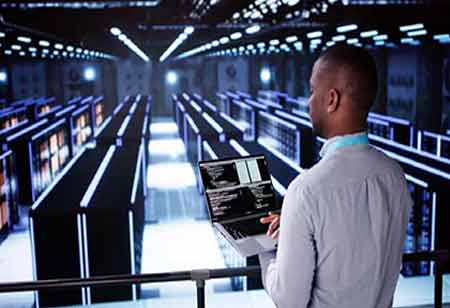THANK YOU FOR SUBSCRIBING

Embracing Sustainability and Technology
Cesare Caoduro, Digital Automation & Integration - Technical Director, AECOM

 Cesare Caoduro, Digital Automation & Integration - Technical Director, AECOM
Cesare Caoduro, Digital Automation & Integration - Technical Director, AECOMIn an interview with Cesare Caoduro, Technical Director, AECOM; he elucidates on the significant transformations happening in the construction industry and talks about major challenges and gives insights into embracing new trends
What are some of the major challenges and trends that have been impacting the Construction Industry lately?
It is no secret that some of the major challenges in the construction industry are around sustainability, technological advancements, safety and risk management, offsite construction and modularization. There is a growing emphasis on sustainable construction practices and green building. The industry is focusing on reducing carbon emissions, minimizing waste, using eco-friendly materials, and incorporating renewable energy sources into construction projects. As AECOM we are working very hard to make sure we deliver our best design, yet maintaining the carbon emissions as low as possible, this is not only to meet our clients’ expectations, it is for us and for our communities.
“Construction companies are increasingly leveraging digital tools and data analytics to streamline operations, enhance project management, and make data-driven decisions.”
Another very big trend that I am very passionate about is around Digital Transformation and Data Analytics. Construction companies are increasingly leveraging digital tools and data analytics to streamline operations, enhance project management, and make data-driven decisions.
Cloud-based collaboration platforms, project management software, and data analytics tools are being utilized to improve efficiency and productivity. This is strictly related to the rapid increase in the demand of modular constructions. Prefabrication and modular construction methods are gaining popularity due to their ability to expedite project timelines, improve quality control, and reduce construction waste.
What keeps you up at night when it comes to some of the major predicaments in the Construction Industry?
Construction projects often face challenges related to delays and cost overruns. Factors such as poor project planning, labour shortages, unforeseen site conditions, and supply chain disruptions can contribute to these issues. Managing project timelines and budgets efficiently is crucial for the success of construction projects. While technological advancements offer numerous benefits to the construction industry, integrating new technologies into existing processes can be quite challenging. There is a general resistance to change, lack of digital understanding (hence trust), and compatibility issues with legacy systems, all these factors can hinder the effective adoption and implementation of technology solutions.
Can you tell us about the latest project that you have been working on and what are some of the technological and process elements that you leveraged to make the project successful?
One of the major challenges in delivering large projects is the possibility to seamlessly transfer data between stakeholders. Engineers, project managers, construction managers, and the entire supply chain, is feeding from different data sources across the different phases of the project.
This is inevitably leading to loss of information, reworks and increase cost of construction. BIM (Building Information Modelling) has been around for quite some time now, but we are still considering it as a tool and not as a process. It is not about which software we use, it is about the data we capture, and how we are going to leverage a centralised data approach, to make sure that everyone receives the right information at the right time, in order to make more informed decisions. My personal focus in the next few years is to nurture the idea of abstracting the process from the tools we use, and drive the adoption of processes instead of teaching people how to click buttons. It is a long way until we will be in a position to trust machines to do the repetitive works, so we can focus on what we are good at, making decisions.
What are some of the technological trends which excite you for the future of the Construction Industry?
Without sounding too obvious, artificial intelligence is probably the biggest technological trend that can affect our industry. AI and machine learning algorithms can analyse large volumes of construction data, identify patterns, and make predictions. AI-powered solutions can optimize construction schedules, predict risks, and improve resource allocation. Machine learning algorithms can automate tasks, such as quality control inspections, and enhance decision-making based on historical data. This would have not be possible without technological advancement in the cloud computing and collaboration field. Cloud-based platforms and project management software enhance communication, collaboration, and data sharing among project teams. Cloud computing allows for centralized storage, access to project information from anywhere, and real-time updates. The use of collaboration platforms enables seamless coordination, document management, and version control, promoting efficiency and reducing errors.
Read Also
Where Safety Really Lives: Between the Plan and the Jobsite
Accelerating the Shift Toward Data-Led Construction Excellence
Building Projects Through People, Planning and Culture
Innovating the Future of Construction: Insights From Power Design's Leadership
Advancing Construction with Technology and Care
Technology as a Strategic Advantage in Preconstruction

 Copyright © 2026 All Rights Reserved | by:
Copyright © 2026 All Rights Reserved | by: Construction Tech Review
| Subscribe | About us | Sitemap| Editorial Policy| Feedback Policy














